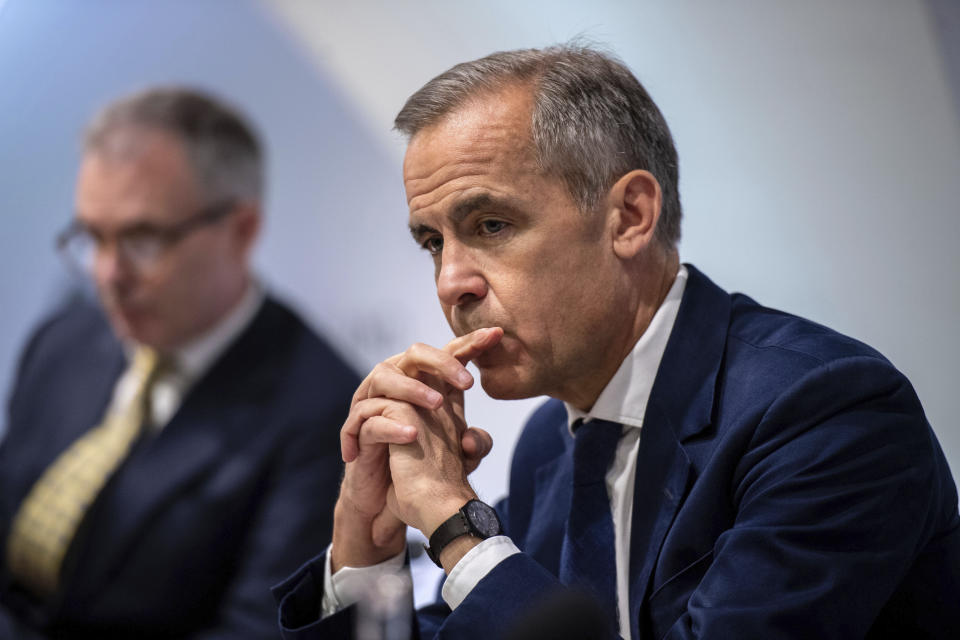UK inflation stays at 2.5 year low ahead of Brexit deadline

At 1.7%, UK inflation in September came in slightly below expectations but remained at its lowest level since December 2016 — something that will ease pressure on the Bank of England to quickly increase interest rates.
Analysts had predicted that inflation would rise to 1.8%, slightly below the bank’s 2% target. Ahead of this month’s Brexit deadline, the slower growth in prices will be a boost to households, whose spending has been a significant driver of Britain’s economy in recent years.
A stronger pound, which made gains in September, helped price growth stay at the two-and-a-half year low. The sharp fall-off in the value of the currency since the 2016 referendum had prompted a surge in inflation, mainly because it made it made it more expensive to import goods.
READ MORE: UK labour market 'shows signs of slowing' as jobless rate increases unexpectedly
Petrol and diesel prices fell between August and September, the Office for National Statistics (ONS) said on Wednesday. But an increase in the prices of furniture, household appliances, and electric goods offset those declines, as did price jumps at restaurants and hotels.
“Inflation remained unchanged into September at its lowest rate since late 2016,” said Mike Hardie, the head of inflation at the ONS.
While growth in prices has slowed, wages continue to surge. On Tuesday, the ONS said that wages grew at a rate of 3.8% in the three months to the end of August, compared to the same period last year.
An unexpected jump in inflation in July put pressure on the Bank of England to control price growth. But the central bank has been reticent to make any changes to its monetary policy stance ahead of the 31 October Brexit deadline.
The bank would be expected to ease its policy stance in the event of a no-deal Brexit — something that would likely involve a slashing of interest rates and stimulus measures designed to boost the economy.
READ MORE: Asos blames warehouse issues for 68% plunge in profits
But under current guidance from the bank, which assumes that there will be an orderly exit from the EU, the bank has said that it expects to gradually increase interest rates.
Above-target inflation would also see the bank increase rates, but the 1.7% figure gives credence to the bank’s wait-and-see approach.
“UK inflation has been on a rollercoaster ride since the Brexit vote in 2016,” said Andrew Evans, an equity fund manager at Sanlam Investments.
“Driven along by a dramatic shock fall in sterling, inflation picked up sharply post June 2016, rising from 0.3% in May 2016 to 3.1% in November 2017. Since then, it has gently trended downwards to 1.7% in August 2019. A number of factors are keeping a lid on inflation: global growth appears to be slowing, and trade tensions have impacted demand globally,” Evans said.
“In spite of full employment in the UK, and real wage growth, inflation remains fairly steady and manageable.”

 Yahoo Finance
Yahoo Finance 
